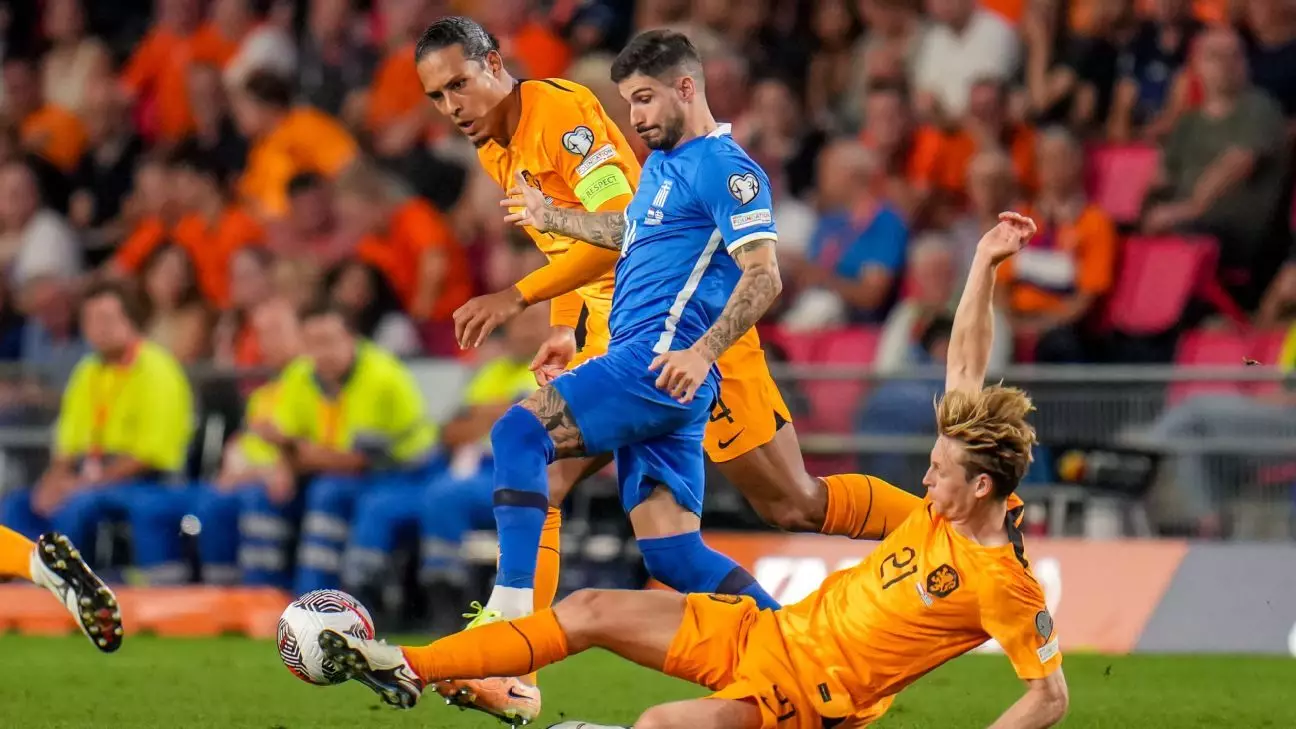In a notable development ahead of the UEFA Nations League match against Bosnia and Herzegovina, the Netherlands national team has announced the withdrawal of key players Virgil van Dijk and Frenkie de Jong. This move comes as a strategic decision governed by medical considerations, emphasizing the importance of player health over immediate competition. Netherlands coach Ronald Koeman confirmed that both athletes have returned to their respective club duties following internal discussions on their fitness levels. Rather than risking further strain, it appears the coaching staff prioritized the long-term health of their stars.
Virgil van Dijk’s withdrawal from the squad is particularly noteworthy, given his influential presence on the field as Liverpool’s captain. Reports suggest that the decision was made primarily as a precaution. At 33 years old, maintaining fitness without aggravating unseen issues is crucial for Van Dijk, who hasn’t been reported injured. His consistent performances have been vital in leading Liverpool to the top of both the Premier League and the Champions League this season. The Netherlands’ recent success, clinching a spot in the Nations League quarterfinals with a commanding 4-0 win over Hungary, likely influenced Koeman’s choice to avoid unnecessary risks with star players.
On the other hand, Frenkie de Jong’s return to the national team comes after a lengthy hiatus due to an ankle injury, which sidelined him from significant competitive play last season, notably missing the European Championship. His first match back with the national squad was met with optimism, suggesting that his integration could significantly enhance the team’s tactical execution. However, De Jong himself acknowledged that he requires additional time to regain his peak performance levels, prompting the decision to step back from this fixture.
The implications of these withdrawals extend beyond just this match. For their clubs, especially Liverpool, keeping players like Van Dijk healthy is paramount. Liverpool’s forthcoming schedule includes critical matchups against Southampton, Real Madrid, and Manchester City, making the absence of their captain against teams of such caliber a significant risk. Coach Jürgen Klopp’s squad depth will surely be tested as they navigate this congested fixture list without one of their essential leaders.
From a national team perspective, the Netherlands will need to regroup and strategize to fill the void left by their influential players. Koeman’s side has shown promising potential, but the strain of integrating new players while maintaining consistent performance can be challenging, especially in high-stakes matches.
The decision to withdraw both Van Dijk and De Jong from international duty underscores a growing trend in modern sports thinking—prioritizing athlete welfare over immediate competitive pressures. It serves as a reminder that in the world of sports, the longevity and health of players should always come first. As the tournament progresses, the Netherlands national team will be tested, but the health and future performance of its key players like Van Dijk and De Jong will be the true barometer of success for both club and country in the long run.

